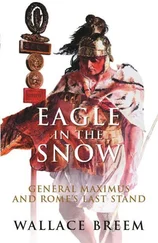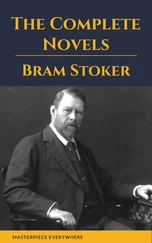Only the Bishop did not share the general festivity. When I met him a day or so later, his face was pinker than usual. He had the look of a man who does not enjoy the martyrdom of unpopularity.
On our last day I went to the baths and had my hair dyed. It was silver all over now and I think the troops knew, to judge by the nickname that they had given me. But I did not care. What were their opinions to me? In the afternoon Quintus went to the deserted Temple of Epona, while I sat in the back room of a merchant’s shop and haggled over the price of a flask of perfume for Rando’s daughter. Afterwards I rode in search of my friend. I tied my horse beside his and then sat down upon a block of fallen stone. The sun shone strongly upon the red and grey of the buildings, and the entrance to the temple was shadowed in darkness. No-one came here now and I had the whole square to myself. The sky was very blue, I remember, and the trees stood silent, their once dark leaves already turned a rich brown. Once it had seemed as though they would live for ever; now they were dying after so short a life, and would soon crumble into dust. A lizard ran across the paving and concealed itself in the tufts of grass that thrust themselves upwards between the cracks, its small body heaving, as though it found the heat too much at that time of the year. I unpinned my cloak and shut my eyes, and felt the sun upon my face. I thought, for a moment or two, of the bustle in the offices of the Basilica, and of the legion in its earth and timber forts, and of all the work that awaited me when I returned. Suddenly, I felt very old and very tired. I thought of the villa at Arelate and of the pool in which I had swum as a boy. I thought of the plans we had made, my wife and I. There had been that winter when it was very cold and we had spent the evenings planning a new and proper home in the forest of Anderida. She had sat by the fire, spinning, while I drew the outlines of the new house with a stick of charcoal upon the back of a duty list. We had argued about the size of the rooms and how many we should need. Quintus had joined us, one night, and we had laughed and joked over the wine. That was the night she had washed her hair, and she sat by the fire, drying it and listening to our talk. There had to be a special room for him, I insisted, so that he would come to visit us often; and Quintus had agreed, and they had looked at each other and smiled.
I opened my eyes and stared up at the sky. There were so many questions that I had wanted to ask; so many that I had never dared to ask. I never would ask them now. I shut them from my mind. They were the bad things, about which I could do nothing. It was better, I thought, to remember the happy times instead. Perhaps, when all this was over, we would buy a villa still, and farm it, and Quintus would breed horses, and I would write that military history that had been in my mind all these years. And in the evenings we would sit before the fire and drink wine and remind ourselves of the old days. So I sat there, blinking in the sun, and I was just an old man, dreaming foolish dreams.
When I looked up again, Quintus was standing over me. He saw the flask at my side, and laughed. “It is not for yourself, I hope. I remember your remarks, once, about perfumed tribunes. You kicked the fellow out.”
“I did,” I said, amiably. We walked in the sunlight to where our horses stood, and I turned to ask him something, and then stopped. He looked back at me in silence, his face quite calm and wonderfully relaxed except for the eyes. He had that look that I remembered seeing once before, when he had been made a present of a fine foal. Perhaps Aelia had known it also. But now, he had been to the Temple.
“Yes,” he said. “It was good. Oh, Maximus, when I die I like to think that the goddess will grant my wish, especially if I die in battle in a good charge.”
“What is your wish?” I asked.
“There is another.” He looked at me steadily. “But this one is more simple: that I may be allowed to drive the golden horses of the sun.” And after that he was silent.
Back at Romulus we made our offering before the small altar that we had made to do honour to our god; we made the ritual sacrifice; we offered up the accustomed prayers; and I felt the burden of my fatherhood upon me. All the while a sentry kept watch outside to see that we were not disturbed. After it was over we sat, still in silence, and watched the sun dip behind the hills.
It was getting dark now and the shadows were running back into the room. I struck a flint and lit the tiny lamp that stood on the wine table. Over the yellow, flickering flame we looked at each other. I said, “There is still hope, you know.”
“Yes,” he said. “I know that.” But he had the look of a man who did not care any more.
I heard the sentry stamp his feet outside the door. There was a murmur of voices, and then the door opened and the Bishop came in.
“You leave tomorrow,” he said. “I came to say goodbye.” We talked for a while in a polite and stilted manner, and all the time he kept on looking at the brand on my forehead, which always showed when my hair had been cut.
He said, suddenly, “You have no priests.”
I raised my head. “No,” I said, “Not in your sense of the word. Yet some of us are granted the privilege of acting as guides upon the way. We mediate on behalf of our brothers.”
His intellectual curiosity overcame his natural repugnance to discuss a matter of which he disapproved. “Tell me,” he said, “why it is that your temples are made below the ground and why your beliefs are kept so secret?”
I looked at Quintus and then at the Bishop. I said, “We believe that power is lost through idle talk. We draw strength from our worship as a community, as you do, and yet—” I hesitated. I said, “The best prayers are made in silence.”
He nodded. “I understand,” he said. He put his cup down on the table and talked of other things then.
“It has been a hard year,” said Quintus, in reply to some remark.
“It will be harder yet,” said the Bishop calmly, his big hands folded across his lap, the cross upon his throat glinting in the light.
“What do you mean?”
“The berries on the bushes have been taken already, and each night at dusk you can see the geese flying inland from the north.” He smiled. “A colony of field mice live just outside the wall at the back of my house, on the north side. You can see their holes, a dozen of them quite clearly. Now they are blocked up and they have made fresh holes on the other side of the wall. They know, too. All the farmers say the same thing. It is going to be a hard and bitter winter.”
“How bitter?” I said sharply.
“I do not know, my son, but there will be snow and ice.” He looked from us to the altar in the niche in the wall. “Are you afraid of death?” he asked gently. “If you followed my faith there would be no need.”
“I am a soldier,” I said. “Death is something I have given and it is something that I must receive. I am only afraid of dying; not of being dead.”
He was silent for a while. Then he rose to his feet. At the door he paused. He said steadily, “It is easier to be blinded by the sun than by the darkness of the night.”
I said, “The sun has died but it will renew itself in the morning.”
“You are very sure.”
I smiled. “Yes. That is why we have something in common, all three of us.”
He did not take up the challenge. Instead he said, “Am I right in understanding that you intend to do battle with the Vandals?”
I nodded, surprised. “How do you know that? I have told no-one. Unless Quintus—” I turned to look at him but he shook his head.
The Bishop said, “It was in your face when you came to the Basilica yesterday morning. Before that you had the look of a man trying to make up his mind. Yesterday you looked peaceful. The decision had been made. There is only one thing that worries a general—the decision to engage the enemy; the when, the how and the where.”
Читать дальше












